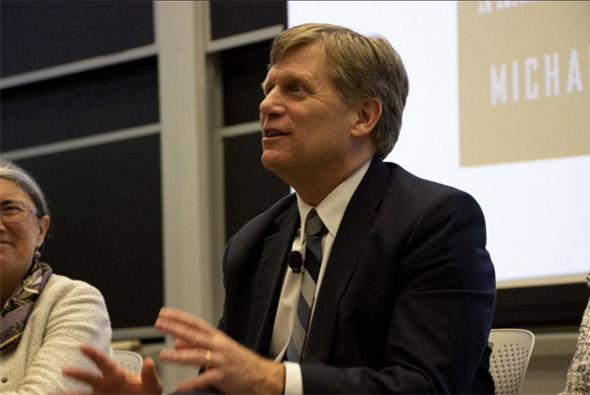After the Cold War, an uncertain peace
In MIT talk, Michael McFaul, former U.S. ambassador to Russia, explores tensions between the two countries.

Michael McFaul; photo by Laura Kerwin/MIT Center for International Studies
“I support nongovernmental engagement … and I think we should continue that,” McFaul said, adding that “science is universal” and lends itself to international collaboration.
Why have U.S.-Russia relations been rather fraught over much of the last decade? Some might argue that tension is inevitable among international powers. Others have contended that U.S.-backed expansion of the North Atlantic Treaty Organization (NATO) in the last two decades has made Russia feel threatened. But those are hardly the only possible explanations.
In a talk at MIT on Thursday afternoon, Michael McFaul, the former U.S. ambassador to Russia, offered a different intepretation: Much of the change in relations stems from internal Russian politics, he argued. In particular, McFaul said, Russian President Vladimir Putin believes that the U.S. works hard to foster regime changes around the world. The 2011 Arab Spring, followed by large-scale protests in Russia later that year, heightened this feeling on Putin’ part, marking a major inflection point in U.S.-Russia relations.
More SHASS stories about 21st-Century Citizenship
Suggested links